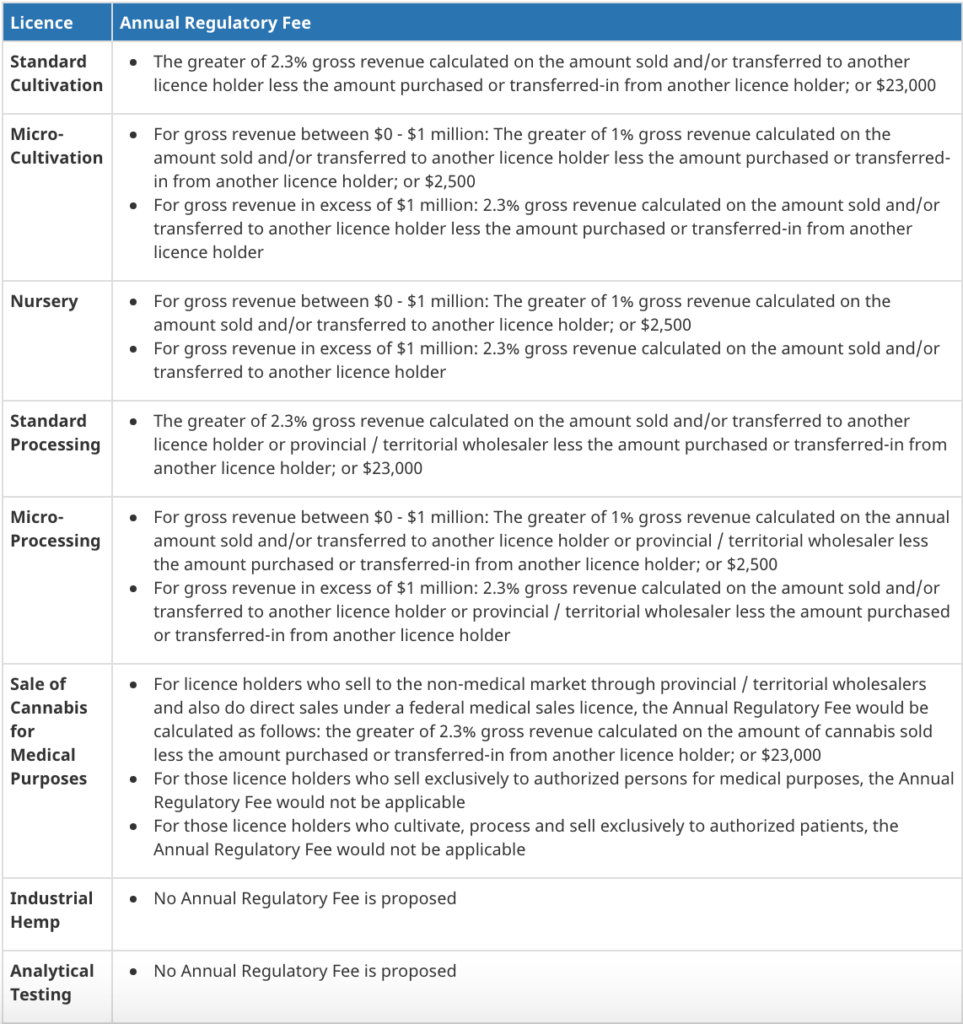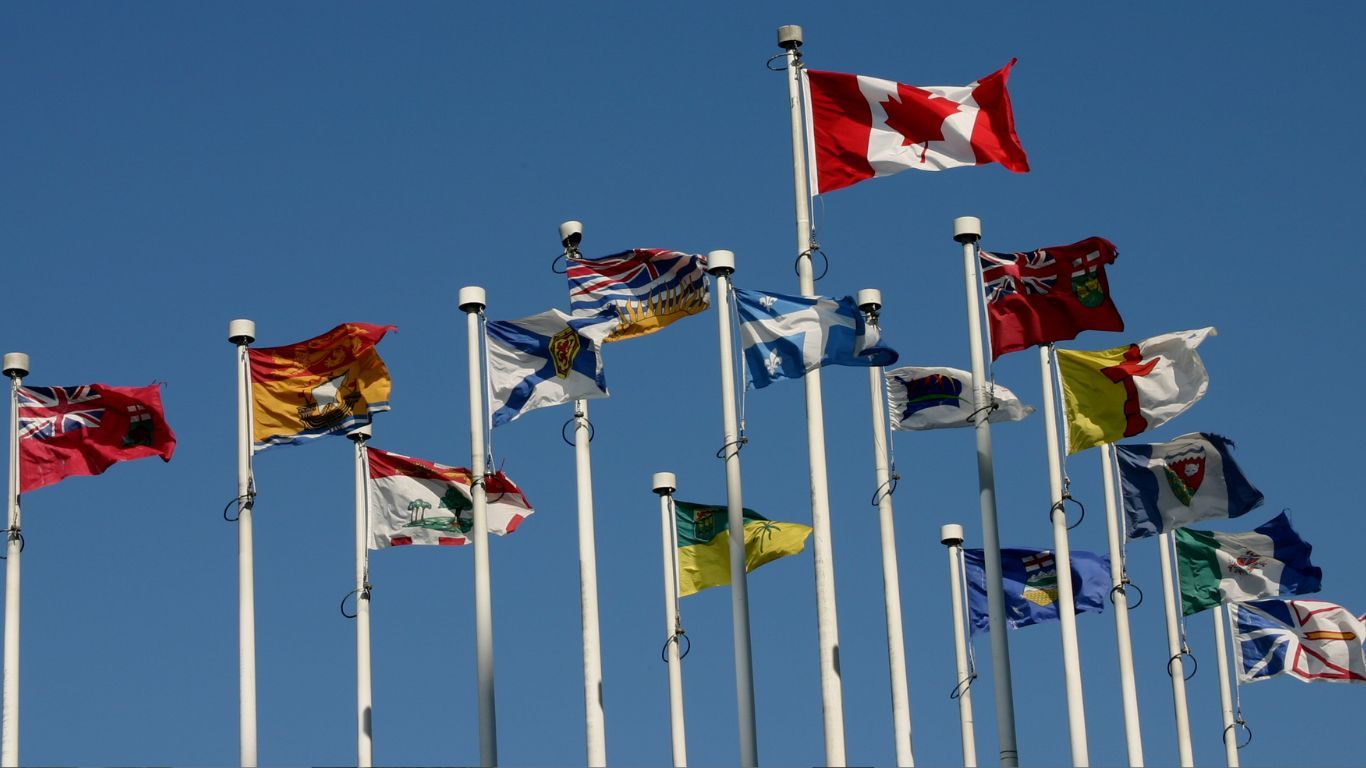
The Government of Canada announced today an extension of the deadline for payment of the 2020-2021 Annual Fee for cannabis licence holders, but industry representatives say it doesn’t go far enough.
The change is intended to help address economic difficulties related to COVID-19.
The changes are in response to extensive industry lobbying that has sought to have the cost recovery fee either removed entirely, or to have Health Canada provide service standards for those associated fees.
Under the Cannabis Act and Regulations, federally licenced cannabis producers are required to pay a 2.3% cost recovery fee to the government to help ensure the regulatory system for the cannabis industry is paying for itself, rather than requiring taxpayer subsidies. The annual regulatory fee is calculated based on the licence holder’s defined gross revenue for a given year.
“Cost recovery is a standard practice across the Government of Canada to support program delivery,” said Ginette Petitpas Taylor, Minister of Health, when the fee was announced in 2018. “It ensures that those who benefit from the new legal market will pay the costs of regulating cannabis, which will reduce the cost to Canadians. We believe that this approach addresses the concerns raised by the cannabis industry, while ensuring that Canadians will not shoulder the costs of cannabis regulation.”
The cost recovery model is intended to be revenue neutral, meaning any extra money the government has left over after paying for services is to be refunded to those licence holders. However, many in the industry have complained about a lack of service standards to measure that by.
“I’m disappointed, first and foremost. I would very much like to have seen service standards come along with this, and rather than deferral I would like to have seen the fees canceled, at least for this year. Nobody was lobbying for a deferral.”
Ivan-Ross Vrana, VP of Government relations at Eve and Co and also representing the Canadian Chamber of Commerce National Cannabis Working Group
For standard licence holders, the greater of 2.3% gross revenue is calculated on the amount sold and/or transferred to another licence holder, less the amount purchased or transferred-in from another licence holder, or $23,000.

For micro cultivators and processors and nurseries with gross revenue between $0 – $1 million, the greater of 1% gross revenue is calculated on the amount sold and/or transferred to another licence holder less the amount purchased or transferred-in from another licence holder; or $2,500. For gross revenue in excess of $1 million, 2.3% of gross revenue is calculated on the amount sold and/or transferred to another licence holder less the amount purchased or transferred-in from another licence holder.
“Our organization and many companies were involved in pressing Health Canada for some relief. I’d say that the response to that as announced today in the Gazette is at the low end of helpful as companies are facing pretty significant liquidity challenges. So this short term effort on the part of Health Canada will have a pretty minimal effect overall.”
George Smitherman, President and CEO of the Cannabis Council of Canada.
Many in the industry have been frustrated by the lack of service standards attached to that cost recovery fee, which they say is a requirement for such a cost recovery system. While other similar cost recovery fees implemented by the government do have attached service standards, they say the cannabis industry still has none, nearly two years into legalization.
“I’m disappointed, first and foremost,” says Ivan-Ross Vrana, VP of Government relations at Eve and Co and also representing the Canadian Chamber of Commerce National Cannabis Working Group. “I would very much like to have seen service standards come along with this, and rather than deferral I would like to have seen the fees canceled, at least for this year. Nobody was lobbying for a deferral.”
Ross says he can understand, given ongoing staffing issues related to COVID-19, that Health Canada may have had some challenges providing those service standards, but also points out that they have had nearly two years now to provide those standards.
“I would just like to see service standards of any kind implemented. I guess I understand there are issues because they are understaffed right now with COVID. But they have had more than a year and a half now. Sure, it’s a brand new industry, but other industries have service standards. Why can’t we?”
George Smitherman, President and CEO of the Cannabis Council of Canada, shares a similar sentiment.
“Our organization and many companies were involved in pressing Health Canada for some relief,” Smitherman told StratCann. “I’d say that the response to that as announced today in the Gazette is at the low end of helpful as companies are facing pretty significant liquidity challenges. So this short term effort on the part of Health Canada will have a pretty minimal effect overall.”
Like Vrana, Smitherman says he understands the regulatory is facing challenges with staffing during COVID-19, and says Health Canada has made some positive regulatory changes in the last few months to streamline things for producers, but still feels the regulator could do more to help the industry survive these economically uncertain times.
“We’re paying these fees, and in exchange for these fees there’s a requisite expectation of service standards to be met,” says Smitherman. “That having been said, that aspect of the conversation in the context of COVID-19 is a little more complicated.
“Obviously some personnel have been relocated within the branch. So I think one thing I could say in Health Canada’s favour is they have offered as much regulatory flexibility as they thought they could given the circumstances.”
“You cannot say it won’t help,” he continues, “but you would have to be a little careful to suggest it helps a lot. It’s like twenty million dollars of annualized short term loans to a multi-billion dollar sector. The fee is projected to capture about $40 million for this September due date and they have extended payment of that for six months. So that speaks to the short term nature of it, and also the relatively limited impact.
“When we look at what was said for consultation, many pushed for relief to be as extended as possible. So we can’t say it won’t be helpful but we can’t say it will have too significant of an impact.
“I think in our ongoing conversation with Health Canada, service standards are always going to be on the agenda, but I think industry has an interest in pushing on the broader economic interest of Canada, not only the regulatory fee but excise taxes and… more awareness about the economic challenges and opportunities for our sector to grow.”



































